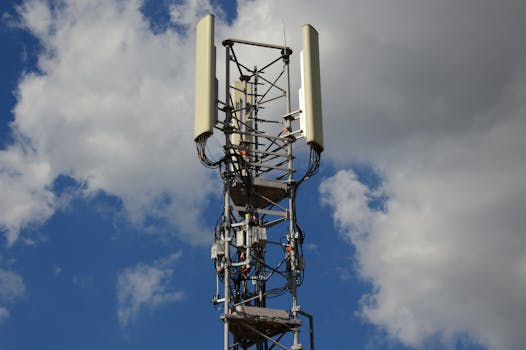5G Technology Advancements and Impact on Mobile Networks

5G Technology Advancements and Impact on Mobile Networks
5G technology advancements have been transforming the mobile network landscape, offering unparalleled speeds, lower latency, and enhanced connectivity. The fifth generation of wireless technology has been rolling out across the globe, and its impact on mobile networks is multifaceted. In this article, we will explore the recent developments in 5G technology and their far-reaching implications for mobile networks.
5G technology is built on the foundation of previous generations, but it introduces several groundbreaking features. The most notable aspect of 5G is its ability to provide faster data transfer rates, with peak speeds reaching up to 20 Gbps. This is significantly faster than its predecessor, 4G, which has peak speeds of around 100 Mbps. The reduced latency of 5G, which can be as low as 1 ms, also enables real-time communication and seamless interaction with applications.
Key Features of 5G Technology
Several key features of 5G technology contribute to its revolutionary impact on mobile networks. One of the primary features is the use of millimeter wave (mmWave) spectrum, which operates at a higher frequency range than traditional cellular networks. This allows for faster data transfer rates and greater capacity. Another crucial feature is the implementation of network slicing, which enables multiple independent networks to run on the same physical infrastructure. This feature is vital for supporting diverse applications with varying requirements, such as enhanced mobile broadband, ultra-reliable low-latency communication, and massive machine-type communication.
5G technology also incorporates edge computing, which involves processing data closer to the source, reducing latency and improving real-time interaction. This feature is essential for applications that require instantaneous feedback, such as online gaming, virtual reality, and autonomous vehicles. Furthermore, 5G networks utilize artificial intelligence (AI) and machine learning (ML) to optimize network performance, predict maintenance needs, and enhance security.
Impact of 5G on Mobile Networks
The impact of 5G technology on mobile networks is profound, with far-reaching consequences for various industries and aspects of life. One of the most significant effects is the enablement of widespread adoption of IoT devices, which can now communicate efficiently and reliably with the network. This has led to the development of smart cities, where IoT devices can be used to manage traffic, energy, and other municipal services. The enhanced mobile broadband capabilities of 5G also enable seamless video streaming, online gaming, and other high-bandwidth applications.
5G technology has also transformed the healthcare industry, enabling remote consultations, telemedicine, and remote patient monitoring. The low latency and high-speed data transfer of 5G facilitate the transmission of large medical files, such as MRI scans and X-rays, allowing for rapid diagnosis and treatment. Furthermore, 5G networks can support a vast number of devices, making them ideal for industrial applications, such as predictive maintenance, quality control, and supply chain management.
Challenges and Future Directions
Despite the numerous benefits and advancements of 5G technology, there are still challenges to be addressed. One of the primary concerns is the lack of standardization, which can lead to interoperability issues between different networks and devices. Security is another significant concern, as the increased complexity of 5G networks creates new vulnerabilities that can be exploited by malicious actors. Moreover, the high cost of deploying and maintaining 5G infrastructure can be a barrier to adoption, particularly in rural and underserved areas.
As 5G technology continues to evolve, we can expect to see further innovations and improvements. The development of 5G-Advanced, which is the next phase of 5G evolution, promises to bring even faster speeds, lower latency, and greater capacity. The integration of 5G with other technologies, such as AI, ML, and edge computing, will also lead to new use cases and applications. Moreover, the increasing adoption of 5G technology will drive the development of new business models, such as network-as-a-service and platform-as-a-service, which will enable greater flexibility and customization for users.
Conclusion
In conclusion, 5G technology advancements have been transforming the mobile network landscape, offering unprecedented speeds, lower latency, and greater connectivity. The impact of 5G on mobile networks is multifaceted, with far-reaching consequences for various industries and aspects of life. As 5G technology continues to evolve, we can expect to see further innovations and improvements, driving the development of new use cases, applications, and business models. The future of mobile networks is exciting, and 5G technology is at the forefront of this revolution.




